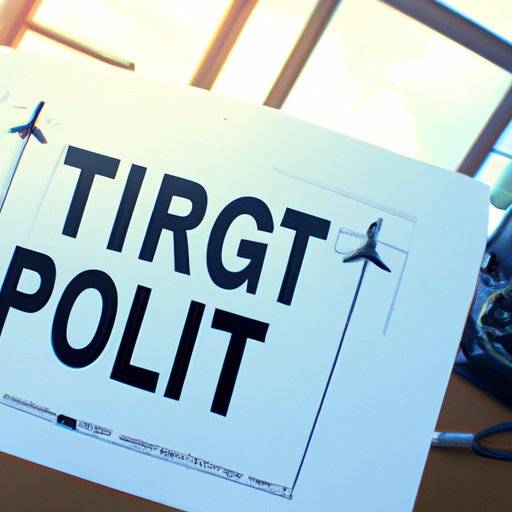Introduction
Becoming a pilot is an exciting journey that requires dedication and hard work. But how long does it take to become a pilot? This article explores the various paths to becoming a pilot, from commercial to military training, and the costs and time commitments involved. It also examines the educational prerequisites for piloting, as well as the impact of experience on the length of time it takes to become a pilot and the career opportunities available.

Exploring the Different Training Paths to Becoming a Pilot
There are several paths to becoming a pilot, each with their own benefits. Commercial pilot training prepares individuals to fly large passenger jets, while private pilot training focuses on smaller aircraft. Airline pilot training focuses on flying for a specific commercial airline, while military pilot training prepares pilots to fly military aircraft. Depending on the type of pilot one wishes to be, the training path will differ.
A Step-by-Step Guide to Becoming a Pilot
Regardless of the type of pilot training chosen, there are certain steps that must be taken in order to obtain a pilot’s license. First, an individual must complete ground school, which involves learning the basics of aviation and the regulations governing it. After passing the written exam, they must then complete a physical examination, followed by flight training. During this training, the individual will learn the basics of flying, such as taking off and landing, navigating, and other basic skills. After completing the flight training, the individual must then pass a practical exam in order to receive their license.
The Costs and Time Involved in Becoming a Pilot
The cost of pilot training can vary greatly depending on the type of training chosen. Commercial and airline pilot training typically cost more than private or military training. In addition to the cost of training, the time commitment required to become a pilot should also be taken into consideration. On average, it takes between six months to two years to become a fully licensed pilot, depending on the type of training chosen and the individual’s level of experience.

Examining the Necessary Education and Licensing Requirements for Pilots
In addition to training, there are certain educational prerequisites that must be met in order to become a pilot. Generally, pilots must have a high school diploma or equivalent, although some airlines may require higher levels of education. There are also different types of pilot licenses that an individual can obtain, such as a private pilot license, a commercial pilot license, an airline transport pilot license, and a military pilot license. Each license has its own set of requirements and restrictions.
The Impact of Experience on How Long it Takes to Become a Pilot
Experience plays a major role in how long it takes to become a pilot. For those with prior experience, the training process can be significantly shortened. Experienced pilots may also be able to bypass certain steps in the training process, such as the written exam or the physical exam. Additionally, experienced pilots may be able to obtain a higher level of license more quickly.

Examining the Benefits of Being a Pilot
Being a pilot offers numerous rewards, from the satisfaction of flying to the opportunity to travel the world. Pilots also enjoy competitive salaries and excellent job security. Furthermore, there are many paths for advancement for pilots, from commercial to military to airline to corporate flying.
Conclusion
Becoming a pilot is an exciting journey that requires dedication and hard work. The amount of time it takes to become a pilot depends on the type of training chosen and the individual’s level of experience. Additionally, there are certain educational prerequisites and licensing requirements that must be met in order to become a pilot. However, the rewards of being a pilot—from the satisfaction of flying to the opportunity to travel the world—are worth the effort.
(Note: Is this article not meeting your expectations? Do you have knowledge or insights to share? Unlock new opportunities and expand your reach by joining our authors team. Click Registration to join us and share your expertise with our readers.)
